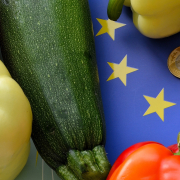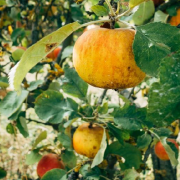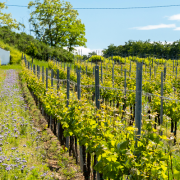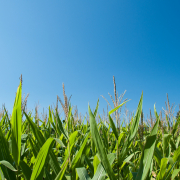Genome Editing Beyond the EU: A Global Conversation
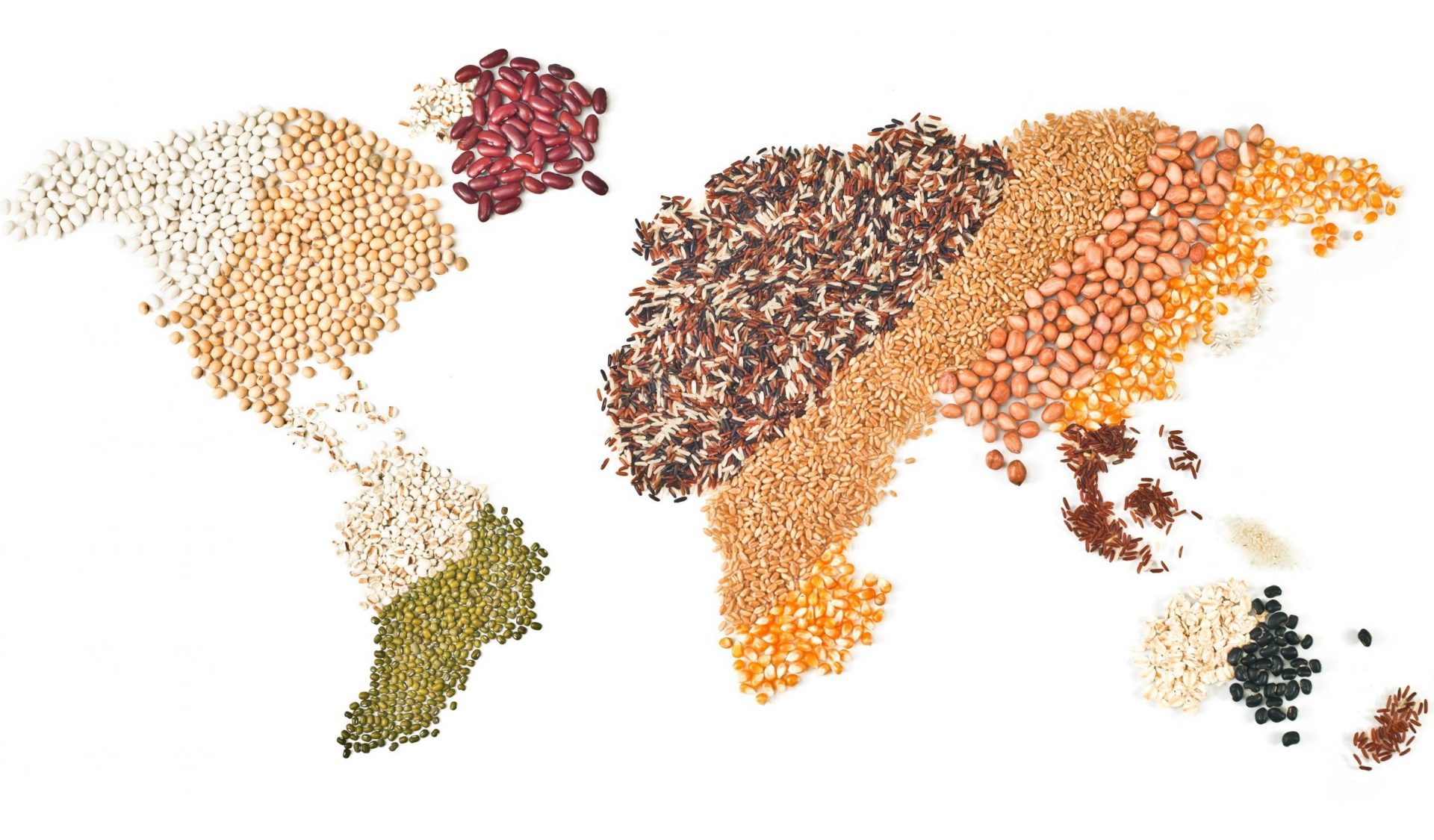
On Tuesday 5 October, ALLEA participated in an online Expert Committee meeting of the Re-Imagine Europa-led Task Force on “Sustainable Agriculture and Innovation” to exchange international perspectives on regulatory systems for the application of new genomic techniques in agriculture.
Since the European Commission published its study on new genomic techniques in April 2021, it has become clear that a policy action on plants produced by targeted mutagenesis and cisgenesis is both necessary and forthcoming. Given this shift in stance from “if” to “how” the legislative framework should be changed, Europe must now consider how high health, safety, and environmental standards can be maintained whilst delivering on the goals of the European Green Deal and Farm to Fork strategy.
In shaping Europe’s future regulatory approach, it is more important than ever that we learn from developments in other parts of the world. Therefore, the main objective of the meeting was to provide inspiration for policy directions that can provide proportionate, future-proof and resilient regulatory oversight, as understood in the Task Force’s White Paper on the Regulation of Genome Editing in Agriculture and in a manner that addresses the concerns identified as part of the narrative analysis detailed in the Task Force’s recent report Beyond the Apple of Discord: Existing Narratives and Ways Forward.
The meeting was chaired by Dr Peter Kearns, Special Adviser to Re-Imagine Europa, and started with a keynote presentation from Prof Jennifer Doudna, Professor in the Departments of Chemistry and of Molecular and Cell Biology at the University of California, Berkeley and 2020 Nobel Laureate in Chemistry. In her presentation, Prof Doudna explained the role genome editing can play in counteracting the local consequences of climate change on our food systems, which comprise increased disease severity, lower crop yields, and decreased nutritive quality of food:
“CRISPR-based solutions will allow farmers to adapt to a changing climate and sequester more carbon while preserving prized regional varieties. There is an incredibly important role for CRISPR in the protection of small farmers.”
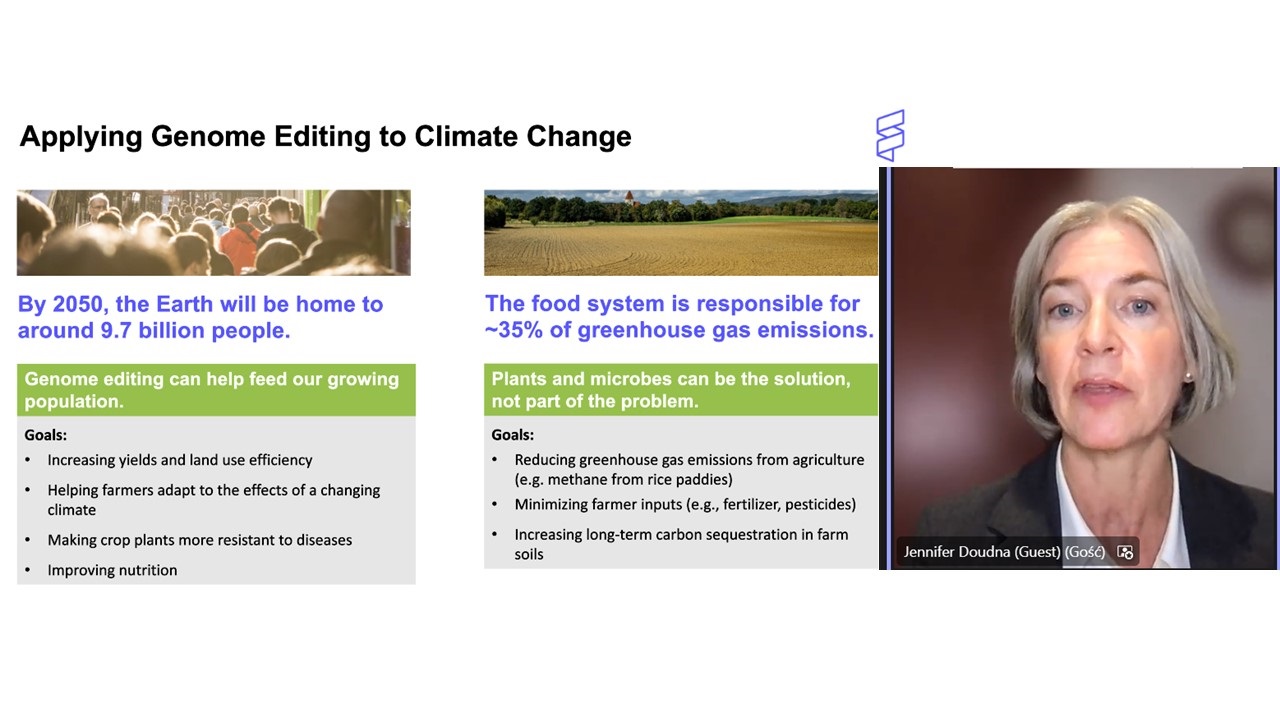
On the other hand, Prof Doudna emphasized the importance of developing a robust ethical framework for CRISPR-based applications:
“It will be crucial to create international standards and secure equitable access to the technology – for the immense benefits of CRISPR-based solutions to be realized, public acceptance is imperative, as is access to innovations.”
The keynote lecture was proceeded by six short interventions by international experts that shed their light on the different regulatory systems for genome editing in agriculture in key regions of the world:
- Dr Martin Lema: The Argentinean regulatory system and developments in the Latin American region
- Dr Vibha Ahuja: Emerging regulations/policies for genome editing in plants in India
- Dr Peter Thygesen: Genome editing and regulatory developments in Australia
- Prof Masashi Tachikawa, Nagoya University: Genome editing in Japan: regulation and applications
- Dr Olalekan Akinbo, African Union Development Agency, Biosafety Network of Expertise: The status of genome editing in Africa.
- Prof Joyce Tait, UK Regulatory Horizons Commission and Dr Louise Ball, UK Department for Environment, Food and Rural Affairs: Genome editing and regulatory developments in the UK.
During the open discussion that followed, the invited speakers and Expert Committee members exchanged their views and experiences on a wide range of topics, including: the challenges in finding the appropriate balance between innovation and precaution, how public opinion and stakeholder perception have shaped new legislation, how new regulatory systems can be designed to be future proof, and how differences between local regulatory systems might affect international trade.
The Task Force will continue to closely monitor the European Commission’s timeline for the development of a new regulatory system for new genomic techniques in agriculture and will continue to foster constructive dialogue on this contentious topic. For a complete overview of ALLEA’s work on genome editing for crop improvement, please visit our dedicated webpage.
The full programme of this meeting can be accessed here.



